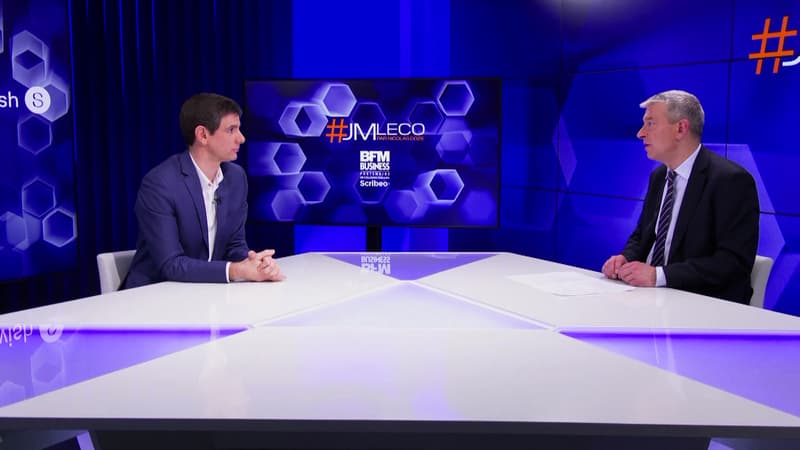What is the mission of the CEREL group?
Originally, CEREL works in electrical engineering. This company is specialized in the design, studies and construction of electrical infrastructures in the tertiary and industrial sectors. My partners and I bought this SME in January 2018. Since then, we have formed a group of companies around CEREL, to diversify our offer and provide added value to our customers.
At the beginning of 2020, we launched for the first time AIRCLIM Solutions, specialist in climate engineering. This subsidiary allows us to complete our knowledge of electricity and, therefore, to approach the market with a multi-technical offer. Then we established innovation activities:
- With ASTREO, specialist in lighting architecture. This company supports our clients (especially in the tertiary sector) in the construction of their workspace. Several points are at the center of our reflection: the luminosity of the spaces, their aesthetics, the acoustics and the comfort of the users;
- With SWISH, specialist in electric vehicle charging. SWISH is based on the solid experience of the CEREL group. The company was born out of our strategic desire to seize the tipping point of the energy transition. This incorporation has helped the CEREL group to metamorphose, to highlight the skills of our engineers and technicians.
What are the specificities of SWISH?
Our offer ranges from slow charging to ultra-fast charging (Super fast). It covers the entire value chain of its market: from the design to the construction of charging infrastructures, including its maintenance. Thanks to our engineering teams, we are the only player in the market that has the necessary technical expertise internally. These charging stations are prized for their reliability. At the same time, we offer our clients to co-finance the cost of the infrastructure.
The SWISH offer is aimed at professionals (in companies), logistics fleets and the general public. We also have charging hubs, dedicated and designed for professionals (mainly logistics), and also open to the general public. Another differentiating element is our ability to market and make available both the product and the service.
SWISH is a relevant player in its market, in terms of price, then the quality of the facilities and maintenance. Finally, we also take care of the technical aspect of our products, example in terms of interoperability throughout the European market.
Can you give us examples of charging solutions?
We are present in different markets, together with key players, such as Spain, Italy and France. On French territory, we have carried out Hub One, the first mobile charging hub in the city of Villepinte. With its Plug & Play system, it was designed to be connected to an Enedis infrastructure and supply vehicles. It can be moved very easily, with a truck. Hub One also allows customer consumption monitoring and marketing management.
Finally, we won an important contract with one of the largest charging infrastructures for electric buses and trucks. It will be installed in Paris, with a very high level of technicality and power.
What vision do you currently have for your market?
The energy transition has been a fundamental issue for several decades. In recent years, its challenges have become more and more pressing. The European Commission pushed us to find different solutions, linked to energy infrastructure. Today, we are about to experience massive electrification. By 2030, vehicle sales hybrid or electric will account for approximately 3 out of 4 vehicles. They will thus cover 20% of the fleet of vehicles in circulation. Therefore, this electrification market is experiencing strong growth, and significant moments are expected for the years 2023, 2026 and 2030.
We anticipate a drop in the cost of these vehicles; furthermore, it has begun. At the same time, most manufacturers are already announcing that they will have a 100% electric offer by 2030. Added to this are other challenges for the coming years: decarbonization, the need to reduce CO2 emissions, anti-pollution standards increasingly strict, the cessation of the production of internal combustion vehicles from 2035, etc., strong engines that drive our market up. Indeed, all these changes are opportunities to promote engineering professionsand therefore, the technical experience of our teams.
In your opinion, what are the main projects in terms of energy optimization?
- The production : in particular with the self-consumption of energy infrastructures. Several of our studies and achievements have developed production infrastructures using photovoltaics;
- Concept, engineering, design: tomorrow, one of the key points will be finding solutions capable of storing energy. Today, we can already offer this storage. The problem lies in the financial cost to the customer. The next challenge is, therefore, to be able to offer competitive, functional and acceptable technologies for customers;
- Reliable infrastructure installation : is a necessity for our customers. As we said earlier, SWISH is the only B2B player in the market capable of creating and designing the infrastructure in-house. This is a very differentiating factor;
- service software management : European standards will evolve over the months, which pushes us to renew our solutions, without losing their performance. SWISH is ready to do the same, with innovative ideas planned for years to come. They will always meet the needs of end users, such as geographic and vehicle issues;
- interoperability : with the opening of charging points throughout Europe. SWISH has already put in place a whole network, which complies with the regulations of the national and European authorities;
- Financing of upstream energy and charging infrastructure: SWISH funds much of it. We also allow a tertiary real estate or industrial building company to co-finance the pricing system.
This content was produced with SCRIBEO. The BFMBUSINESS editorial team was not involved in the production of this content.
Source: BFM TV


